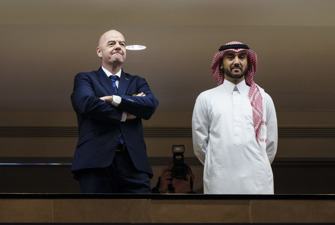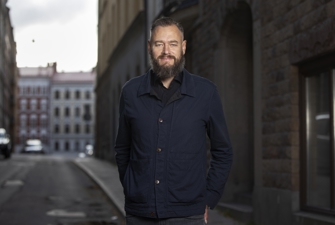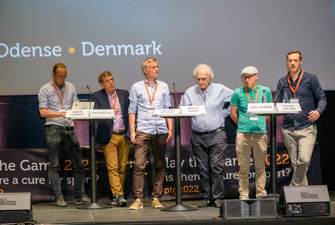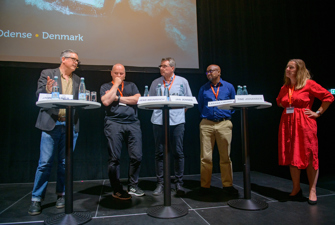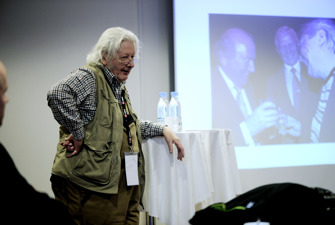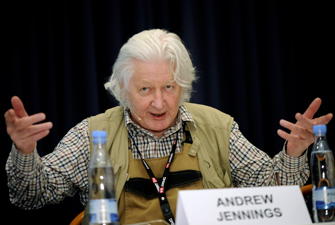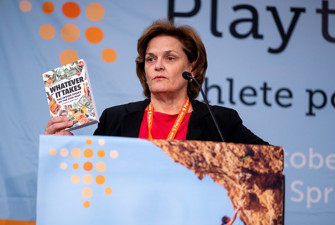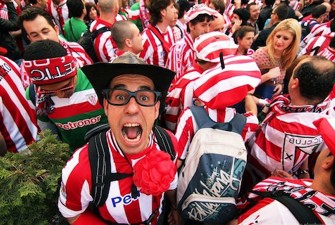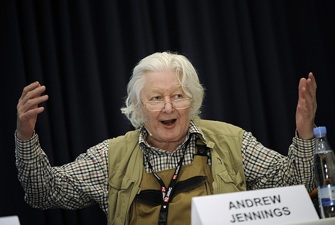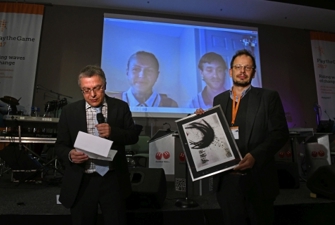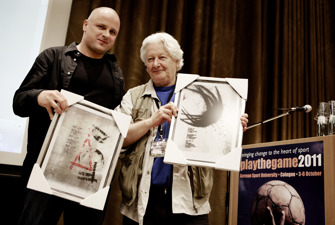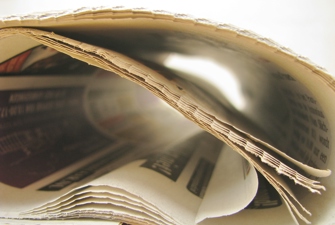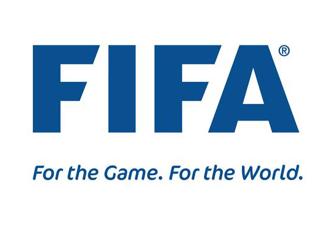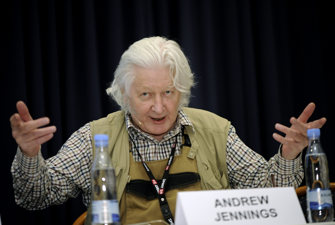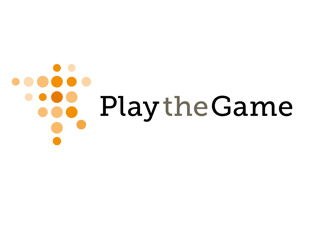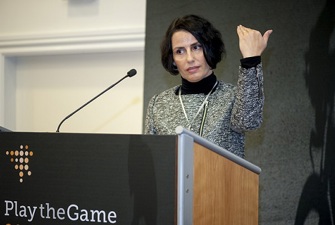Dangers of sports journalism
The working conditions of sports journalists were in focus in a Play the Game 2017 session that shed light on dangers and difficulties when reporting on sports.
The known level of intimidation aimed at sports journalists trying to uncover corruption and crime is only the tip of the iceberg according to new research unveiled at Play the Game 2017.
Research from Kirsten Sparre, an assistant professor at Aarhus University, identified 78 incidents where sports journalists faced some form of violation. These incidents were spread across 35 countries in six continents and ranged from 15 physical assaults to eight journalists being detained, two being kidnapped and four being killed.
“There is a problem; the question is how big,” said Sparre. “I am convinced what I have unearthed is just the tip of the iceberg. There are other incidents out there and there is a lack of reporting mechanisms.”
Speaking in a session titled ‘Whistleblowers and journalists: The dangers of speaking up’, Sparre added: “This is not just a whistleblower issue. We want to look at what the cause is. Is this a governance issue, or is this a crime? Some of it is.”
Censored sports press
A specific example of the problems faced by the press was presented by Eloy Viera Cañive, a lawyer and blogger from Cuba, whose presentation, ‘Pirates of the Caribbean’, detailed the censorship problems faced by his country’s sports press.
“In return for government support of sport in Cuba, there is absolute government control,” explained Viera Cañive. “In Cuba, the independent press is considered a crime. The freedom of the press is conditional to the socialist state. It’s common in our country to find conditions.
“Outrage is a crime that can be used as a condition. Outrage is considered a crime even if you have the arguments. The most common crime used by the government is illicit economic activity.
“In Cuba, everything that is not strictly permitted is prohibited.”
These conditions have created problems for ‘Play-Off’ magazine, an independent sports title in Cuba, which, unlike the state-controlled press, writes about the careers of athletes who have fled the socialist regime.
“The athletes who have left have been despised and forgotten in the media,” added Viera Cañive.
By covering these stories, Play-off has been attacked for illegal distribution, and the US embargo on the island has compounded the problem said Viera Cañive, who appealed to Facebook founder Mark Zuckerberg to help aid the isolated Cuban sports media.
Whistleblowers and the omertà
Jose Luis Pérez Triviño, a Spanish professor in law, discussed the moral and psychological problems of whistleblowing in a sports context and detailed the problems of omertà, which created a false consensus of athletes agreeing not to talk about problems.
One man who was unafraid to break this omertà was Mario Goijman, who blew the whistle on corruption at the Federation of International Volleyball (FIVB) and was bankrupted in the process.
Play the Game international director Jens Sejer Andersen returned to Goijman’s travails, which were caused by personally guaranteeing the 2002 World Championships in Buenos Aires.
Goijman then also confronting the corrupt reign of FIVB president Ruben Acosta who left in 2008 after 24 years in power having ‘earned’ more than $40 million. Goijman was ejected from the FIVB and claims to be owed $750,000 from the 2002 World Championships.
“He lives on the outskirts of Buenos Aires in a rented house and is in a desperate psychological state,” said Sejer Anderson. “We, at Play the Game, have supported him in going to international federations, which have listened but done nothing.”
The FIVB met with Play the Game in 2016, revealed Sejer Andersen, but insist that to make a payment now would be illegal under Swiss law.
“This is the biggest wrongdoing in international sports federations and a scandal we do not want to let die,” said Sejer Anderson, who was followed on to the podium by Hajo Seppelt, a producer from German station ARD, to discuss his differing experiences of working with whistle-blowers.
Russian athlete Yuliya Stepanov and her husband Vitaly provided Seppelt with information that led to the exclusion of Russia from the Olympic movement but had left their country before the story was aired.
Unlike the Stepanovs, who fled Russia before their story was told, Andrey Dmitriev insisted on staying in his country after recounting his experiences in organised doping in athletics.
A month later, Dmitriev called Seppelt to say he had to leave and the Russian travelled from Thailand to South Korea, the Lebanon and the Philippines before being given asylum in Germany.
Seppelt, who praised un-named German politicians for their help, concluded: “What I have experienced from Russia in the last two years is unprecedented.”



